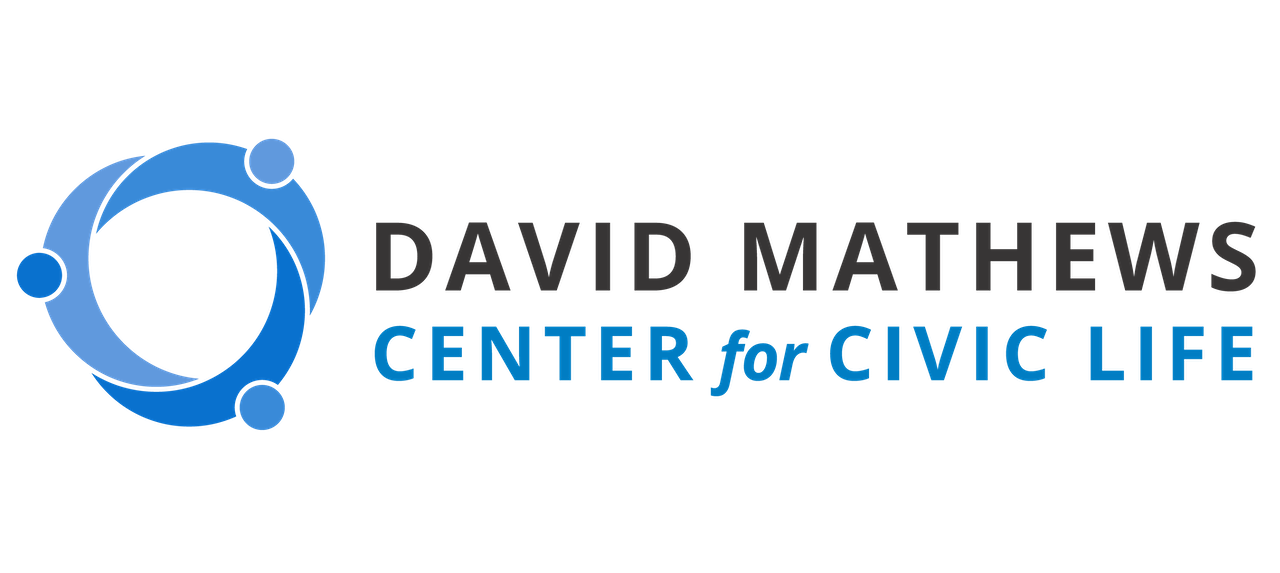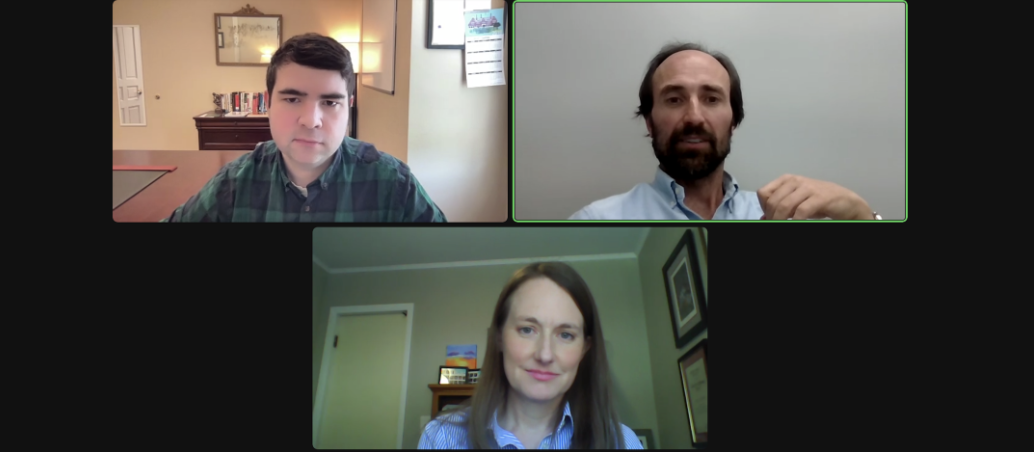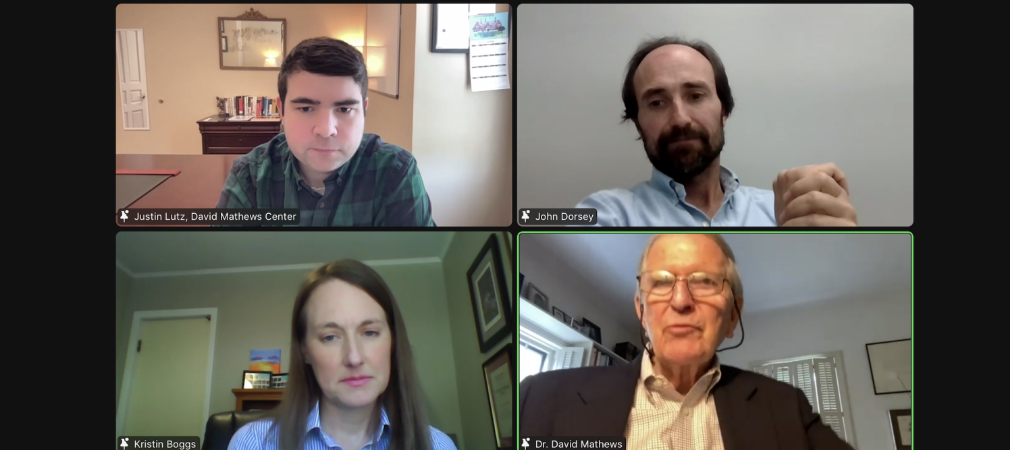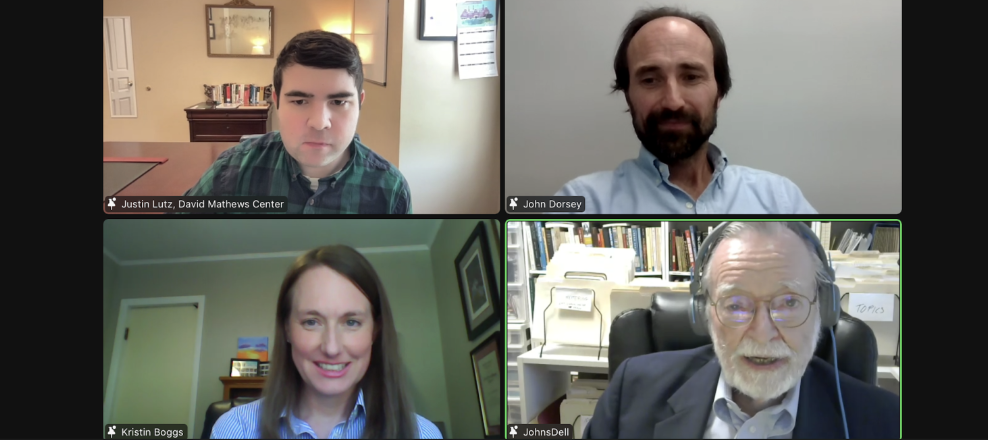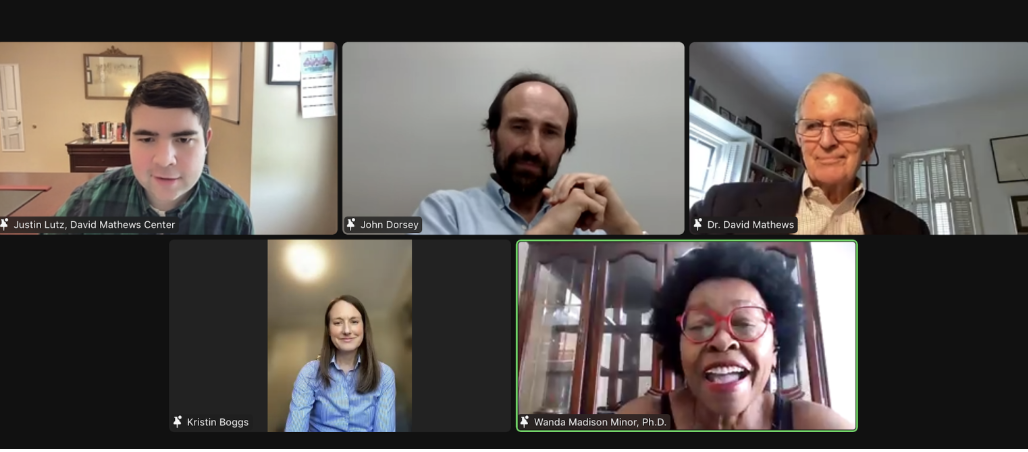Applied Democracy Exchanges: Exploring the Connection Between Social and Physical Health
For the fourth session of Applied Democracy Exchanges, the Mathews Center invited Kristin Boggs, Executive Director of the Albert Schweitzer Fellowship, and Dr. John Dorsey, Founder and Executive Director of Project Horseshoe Farm, to share about the work that they are doing in their communities to promote the connection between physical and civic health.
On Thursday, April 20th, participants met online to discuss the perils of democracy both domestically and abroad. Since the start of the coronavirus pandemic, hesitancies towards healthcare have grown or access has been limited in rural areas. However, April’s session, “Healthcare & Civic Engagement in Rural Areas,” highlights the innovative ways communities have continued to persevere to address these issues.Be clear, be confident and don’t overthink it. The beauty of your story is that it’s going to continue to evolve and your site can evolve with it. Your goal should be to make it feel right for right now. Later will take care of itself. It always does.
The Alabama Schweitzer Fellowship is one of thirteen active Schweitzer program sites across the United States, working to create a pipeline in equipping future health leaders with the skills to work with communities and address unmet health needs. The fellows come from a mix of grad programs, whether it be medical, dental, social work, public health, and more, so each student can learn to work with different sectors and bridge the gap in healthcare. Since the start of the Alabama chapter in 2015, 84 fellows have partnered with over 67 community-based organizations in 10 Alabama counties, dedicating over 18,000 hours of service to Alabama’s most vulnerable communities.
At Project Horseshoe Farm, Dr. Dorsey and his fellows work to address similar health disparities through community, specifically in Hale and Perry County, Alabama, as well as in Pomona, California. Through the fellowships, Project Horseshoe focuses on a three-part mission: “improving health and quality of life for vulnerable neighbors, building on the strengths of local communities, and preparing citizen service leaders for tomorrow’s communities.” In doing so, the fellows are able to create a system of trust, infrastructure, and outreach, which is proven results as Hale County was third in county coronavirus vaccination rates, ranking above Jefferson County. Through both programs’ dedication to community engagement and health, it has emphasized that progress and development can be achieved in rural and urban settings and across a range of different populations.
Although the fellows spend their service year in a range of environments, one thing is always certain – the importance of social connection, both in building trust and providing healthcare. Because their service year is not as intensive of a living and learning experience, Kristin Boggs explains that it can be more challenging for students to build trust with communities, especially with a decline in trusting institutions since the beginning of the coronavirus pandemic. When first entering a community, students may have preconceived ideas for the needs of the community and how they should be addressed based on their educational learning; however, Boggs emphasizes that this is why starting from a position of listening is crucial to the trust building process, something they learned and adapted to in the initial years of the fellowship.
As this foundation of trust develops, fellows can continue to bridge the gap between community and healthcare. Dr. Dorsey explains that a large part of this foundation is the continuity of the organizations and how they build on and support the existing strengths of the community, emphasizing the social connection that forms through these interactions and their fundamental benefits. “If I could write a prescription for a caring, consistent, supportive trusting relationship in my patients, it would first of all be the biggest blockbuster to ever exist, and I think 80% of my patients would be on that medicine, but we don’t usually think about it in these terms.” By engaging with the community, these organizations pave the way for other health programs, such as Project Horseshoe Farm’s Health Partners Program, where once a week, each fellow visits up to ten elderly or isolated neighbors, and assist them in whatever capacity they may need, whether they take them on walks, to the doctor, or other tasks. These simple relational interventions create something tangible that the fellows can do to give their time and care to another human being.
Dr. John McKnight, co-founder of DePaul University’s Asset-Based Community Development Institute, further provided context to this connection to physical health, describing it as “social prescribing.” A structure that has been developed in Devon, New England and practiced significantly in Canada, as health professionals learn more about their patients and the community, they “have enough knowledge that you see more of the problem and aren’t thinking about medicating them, but dealing with their health in a social prescription.” From personal experience working with West Alabama Health Services, Dr. Wanda Minor described how she used this idea to get to know the problems of the community and the people, and then was able to work on the social conditions simultaneously with the conditions of health.
Our next ADE session will occur on Thursday, May 18th, at 12:00PM CDT online via Zoom. We will be exploring the connection between the rule of law and deliberation and the impact it can have on one’s community. Our guest speakers will be Carla Crowder, Executive Director of Alabama Appleseed, and a member of the Judge Frank M. Johnson, Jr. Institute. You can register at the ADE Eventbrite page here.
